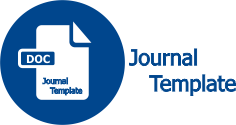Pengembangan Modul Pembelajaran Kimia Berbasis Augmented Reality
(1) Universitas Negeri Makassar
(2) Universitas Negeri Makassar
(3) Universitas Negeri Makassar
(*) Corresponding Author
DOI: https://doi.org/10.26858/cer.v3i2.13766
Abstract
Keywords
Full Text:
PDFReferences
Arikunto, S. 2010. Prosedur Penelitian. Jakarta: PT. Rineka Cipta.
Celikler, D. 2010. The Effect of Worksheet Developed for the Subject of Chemical Compounds on Student Achievement and Permanent Learning. The International Journal of Research in Teacher Education, 1(1), 42-51.
Edgar, D. 1969. Audio Visual Methods in Teaching. New Yorg: Holt, Rinehart and Winston Inc. The Dryden Press.
Kamelia, L. 2015. Perkembangan Teknologi Augmented Reality Sebagai Media Pembelajran Interaktif pada Mata Kuliah Kimia Dasar. Jurnal ISTEK, 9(1), 238-253.
Kusumam, A., Mukhidin, & Hasan, B. 2016. Pengembangan Bahan Ajar Mata Pelajaran Dasar dan Pengukuran Listrik untuk Sekolah Menengah Kejuruan. Jurnal Pendidikan Teknologi dan Kejuruan (JPTK), 23(1), 28-39.
Lukman & Ishartiwi. 2014. Pengembangan Bahan Ajar dengan Model Mind Mapp untuk Pembelajaran Ilmu Pengetahuan Sosial SMP. Jurnal Inovasi Teknologi Pendidikan, 1(2), 109-122.
Mustaqim, I., & Kurniawan, N. 2017. Pengembangan Media Pembelajaran Berbasis Augmented Reality. Jurnal Edukasi Elektro, 1(1), 36-48.
Rogness, J. (2011). Mathematical Visualitation. Journal of Mathematics Education at Teachers College. 2(2), 1-7.
Silitonga, H. 2009. Perancangan dan Implementasi Interaksi Media Pembelajaran Hidrokarbon Berbasis Teknologi Augmented Reality. Tesis: Institut Teknologi Bandung.
Slameto. 2010. Belajar dan Faktor yang Mempengaruhinya. Jakarta: PT Renika Cipta.
Sudjana, N., & Rivai, A. 2011. Media Pengajaran. Bandung: Sinar Baru Algensindo.
Supardi. 2015. Penilaian Autentik Pembelajaran Afektif, Kognitif, dan Psikomotorik (Konsep & Aplikasi). Jakarta: Rajawali Press.
Suryani, D. I., Suhery, T., & Ibrahim, A. R. 2014. Pengembangan Modul Kimia Reaksi Reduksi Oksidasi Kelas X SMA. Jurnal Pendidikan Kimia, 1(1), 18-28.
Suswina, M. 2011. Hasil Validitas Pengembangan Bahan Ajar Bergambar Disertai Peta Konsep untuk Pembelajaran Biologi SMA Semester 1 Kelas XI. Jurnal Ta’dib, 14(1), 44-51.
Talanquer, V. 2011. Macro, Submicri and Symbolic: The Many Faces of the Chemistry "triplet". International Journal of Science Education, 33(2), 179-195.
Wagiran. 2006. Meningkatkan Keaktifan Mahasiswa dan Reduksi Miskonsepsi Melalui Pembelajaran Konstruktivistik model Kooperatif Berbantuan Modul. Jurnal Ilmu Pendidikan (JIP), 13(1), 25-32.
Article Metrics
Abstract view : 969 times | PDF view : 277 timesRefbacks
- There are currently no refbacks.
Jurnal dipublikasikan oleh: Program Studi Pendidikan Kimia
Program Pascasarjana Universitas Negeri Makassar
Alamat JL. Bonto Langkasa Gunung Sari Makassar, 90222
Kampus PPs UNM Makassar Gedung AD ruang 406 Lt 4, Indonesia.Phone 082393643737/085145825311/085242228678
CER UNM Indexed by:

Chemistry Education Review (CER) is licensed under a Creative Commons Attribution-NonCommercial 4.0 International License.










